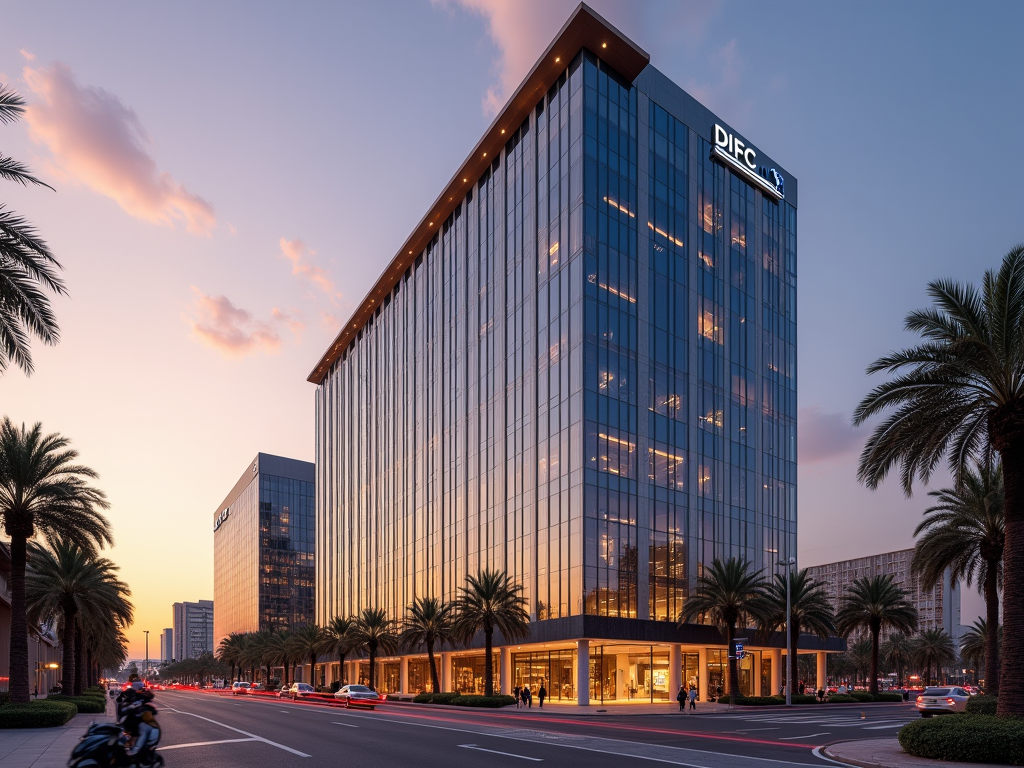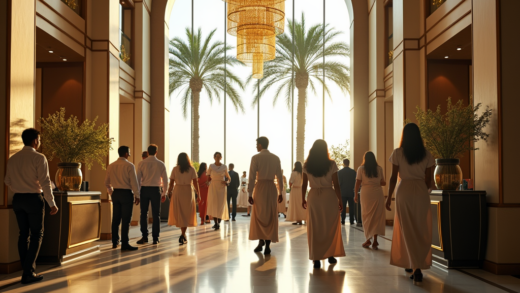The Dubai International Financial Centre (DIFC) plays a pivotal role in attracting global capital by providing a world-class financial hub that facilitates access to a diverse range of investment opportunities. With its strategic location, robust regulatory framework, and a thriving financial ecosystem, DIFC has positioned itself as a magnet for international investors and institutions seeking to capitalize on the dynamic economic landscape of the Middle East, North Africa, and South Asia (MENASA). This article will delve into the various mechanisms through which DIFC attracts global capital, examining its regulatory advantages, business environment, infrastructural offerings, and the ecosystem that supports innovation and growth.
Strategic Location and Connectivity

One of the most compelling reasons businesses flock to DIFC is its strategic geographical positioning. Located at the crossroads of Europe, Asia, and Africa, DIFC provides investors with unparalleled access to a rapidly growing market. The role of location in attracting global capital cannot be overstated, and here’s how DIFC utilizes its position:
- Access to Emerging Markets: DIFC serves as a gateway to various emerging markets, specifically in the MENASA region, making it easier for investors to diversify their portfolios.
- World-Class Infrastructure: The centre boasts modern infrastructure, including state-of-the-art office space and advanced telecommunications, essential for global business operations.
- Proximity to Major Economies: Being close to the UAE’s thriving economy, investors benefit from the stability and growth exhibited in the region.
Robust Regulatory Framework

DIFC stands out for its robust regulatory environment designed to instill confidence among international investors. The financial centre operates under an independent legal framework that is modeled on common law, paving the way for enhanced business transparency. Here are several key highlights:
- Independent Regulatory Authority: DIFC has its own regulator, the Dubai Financial Services Authority (DFSA), which ensures robust compliance standards, further attracting foreign firms.
- Tax Benefits: Companies operating within DIFC enjoy zero taxation on income and profits, making it a fiscally attractive proposition for global capital.
- Protection of Investor Rights: DIFC guarantees legal protections and ensures dispute resolution mechanisms are in place, cultivating an environment of trust.
Another reason why DIFC is an attractive destination for global capital is its supportive business environment. The financial centre aims to foster innovation and accelerate business growth through various initiatives and incentives. The crucial elements include:
- Access to Capital: DIFC is home to numerous venture capital firms, private equity funds, and corporate investors, providing businesses with vital access to funding.
- Networking Opportunities: The financial centre organizes several networking events, connecting investors and entrepreneurs and promoting collaboration and partnership.
- Educational Programs: DIFC offers workshops, training, and seminars to enhance skillsets, benefitting both investors and the workforce.
Innovation and Technology Ecosystem
DIFC is not just a financial hub, but also a center for innovation and technological advancement. The introduction of various initiatives within the innovation space adds to its appeal as a destination for global capital. Some highlighted aspects of this ecosystem are:
- FinTech Initiatives: DIFC is actively promoting FinTech companies through incubators and accelerator programs, fostering an environment that encourages innovation.
- Smart City Initiatives: The UAE government’s commitment to transforming Dubai into a smart city places DIFC at the forefront of tech integration in financial services.
- Partnership with Global Tech Firms: Collaborations with global technology firms allow DIFC to remain competitive and attract technological investments.
Conclusion
In summary, the Dubai International Financial Centre (DIFC) plays a crucial role in attracting global capital through its strategic location, robust regulatory framework, supportive business environment, and innovative technology ecosystem. By offering a unique blend of opportunities and advantages, DIFC has cemented its status as a premier financial hub not just within the UAE, but on a global scale. With its continuous investment in infrastructure and talent development, DIFC is poised to remain an attractive destination for investors looking to tap into the lucrative markets of the MENASA region.
Frequently Asked Questions
1. What types of businesses can set up in DIFC?
DIFC is home to a diverse range of businesses, including banking, asset management, hedge funds, insurance, and professional services like legal and advisory firms.
2. Are there any residency requirements for foreign investors in DIFC?
No, DIFC does not impose residency requirements on foreign investors, making it accessible for global firms and individuals to establish a presence.
3. How does DIFC ensure the protection of investors’ assets?
DIFC has established robust regulatory and legal frameworks that include independent oversight by the Dubai Financial Services Authority (DFSA), ensuring investor protections are in place.
4. What incentives does DIFC offer to start-ups and SMEs?
DIFC provides various incentives such as free zone benefits, access to funding through venture capital, and programs designed to enhance innovation and entrepreneurship.
5. Can foreign investors own 100% of a business in DIFC?
Yes, DIFC allows for 100% foreign ownership of businesses, catering specifically to international investors looking to establish operations in the region.


